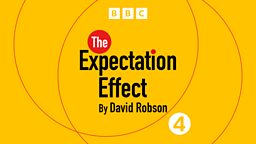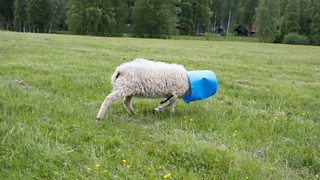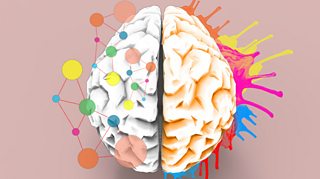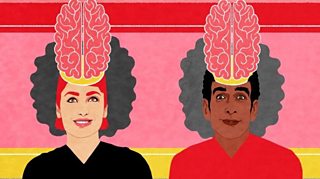How your expectations can transform your life
David Robson’s book The Expectation Effect is about the remarkable science of our mindset, and how your brain can change your world for the better.
The award-winning science writer seeks to explain how the expectations we carry everywhere – that we are prone to illness, that indulgent foods make us gain weight, or a poor night’s sleep renders us useless – might appear to be objective truths but could, in fact, be shaping our wellbeing. He believes resetting these expectations – or our “prediction machine” – can have truly remarkable effects on our health, happiness and productivity.

How our beliefs can affect how we recover from illness
Most of us have heard of the “placebo effect” – the idea, as Robson puts it, that a sham treatment can “bring relief simply through the patient’s beliefs about them.” But what about the “nocebo” effect? This is the “potential power of negative expectation” and it can exacerbate the symptoms of ailments like allergies, migraines, or backache, claims the author. “Whenever we are unwell, a nocebo effect will make our sickness worse.”

Do you tend to catastrophise if you are in pain or feeling unwell?
“Negative expectations can also contribute to the nasty side effects of the drugs that are meant to cure us,” he says. “Nocebo responses can be so strong that they overpower the would-be positive effects of active drugs.”
However, “these negative expectation effects can be neutralised,” says Robson. Do you tend to catastrophise if you are feeling unwell? Try asking yourself the following questions: “Is this thought negative and alarming, positive and comforting, or neutral? What is the evidence for and against this thought? Is there a more palatable way to think about this?”
Finally, he advises repeating reassuring phrases, such as “My pain is in my brain” and “The sensations are real, but temporary.” You might find that by soothing your anxiety and “alleviating doom-laden thoughts”, you actually start to feel better.
How we can take the pain out of exercise?
“You can train your body day in, day out for years on end – but ultimately it is your mindset that will decide your physical limits,” says Robson.
Theory suggests that muscles tire when they run out of fuel and there’s a build-up of lactic acid. But researchers are now investigating expectation effects in sport. What if it’s our prediction machine that estimates how far it can push the body and, when it believes it’s reaching its limits, puts the brakes on, creating the sense that we are “hitting the wall”? This new understanding of “mind over muscle” suggests that “by adopting the right mindset, even the most devoted couch potato can enjoy more gain, and less pain, from their workouts,” says the author.
Many of us struggle to stay fit because of negative expectations, Robson claims. If you had bad experiences in PE, for example, you may have spent your life convinced you aren’t a “sporty” person. According to the “new psychobiological view of fatigue”, this could impact your feelings of exhaustion and your performance. By “recalibrating our perceptions of our own abilities,” he says, we might actually start to find exercise easier.
How worrying about poor sleep is a more powerful pathogen than poor sleep itself
One “common stress in modern life” is “the stress of sleeplessness,” says Robson. Insomnia is often fuelled by a “ruminative, catastrophising thought process that amplifies anxiety and decreases happiness.” The more you fear not falling asleep, the more your mind will race, and the harder it is to drop off.
We often underestimate how much sleep we’re getting and “erroneous beliefs about sleep loss will themselves become a serious source of worry, setting off a vicious cycle,” says Robson. “The prediction machine will decide that we are ill equipped to deal with the day’s challenges” and everything starts to feel stressful.
Around 10 per cent of people are “complaining good sleepers” who believe they are sleep-deprived, even though they’re getting enough shut-eye, says Robson. 16 per cent are “non-complaining bad sleepers”, who don’t obtain 7 hours a night but aren’t anxious about it. And it’s the complaining good sleepers who are more likely to suffer from symptoms like fatigue, depression and anxiety, “while non-complaining bad sleepers are remarkably free of ill effects.”
If you are tossing and turning in frustration at night, try to remember that your interpretations of your feelings “can do more harm than the feelings themselves.” It might just help you drift off…
How your beliefs about your age could actually help you live longer
“You really are as young – or old – as you feel,” says Robson. “Your beliefs about the ageing process may be as important for your long-term wellbeing as your actual age.”
Your beliefs about the ageing process may be as important for your long-term wellbeing as your actual age.
One study, run by Becca Levy at Yale School of Public Health, found the average person with a positive attitude to ageing lived for 22.6 years after the study started, while those with poorer perceptions of ageing survived for just 15 years. Levy wrote that one of the likely causes was “societally sanctioned denigration of the aged.”
When it comes to getting old, we have negative expectations: that our memory declines (so we start relying on lists), that our physical health declines (so we stop exercise and generally slow down) and that our frailty increases (which amplifies the body’s aches and pains).
“If you feel that you may be too old for a certain activity, start questioning the foundations for that expectation,” says Robson. “Does it arise from a real physical disability?... Or have you been infected by the messages of others?”
If we recognise our “capacity to control our ageing, be it through mindset or lifestyle changes” it can “provide a kind of countercharm against the negative stereotypes of getting older,” says the author. Raise your expectations of the ageing process and you might add years to your life.
-
![]()
麻豆官网首页入口 Ideas: Why smart people do stupid things
Some people are smart, but make all sorts of mistakes in their lives. Is that you? Here are four thinking traps clever people fall into.
-
![]()
麻豆官网首页入口 Ideas: The benefits of flexible thinking
Why exposing yourself to new experiences helps you think more flexibly - and enables you to cope better with life's challenges.
-
![]()
麻豆官网首页入口 Ideas: Why you might actually be smarter than you think
Could broadening our understanding of what it means to be intelligent ultimately make us more successful?
-
![]()
麻豆官网首页入口 Ideas: Five ways to be more elastic in your thinking
Author Leonard Mlodinow explains how trying new things and talking to new people can help you be more creative in your thinking.




